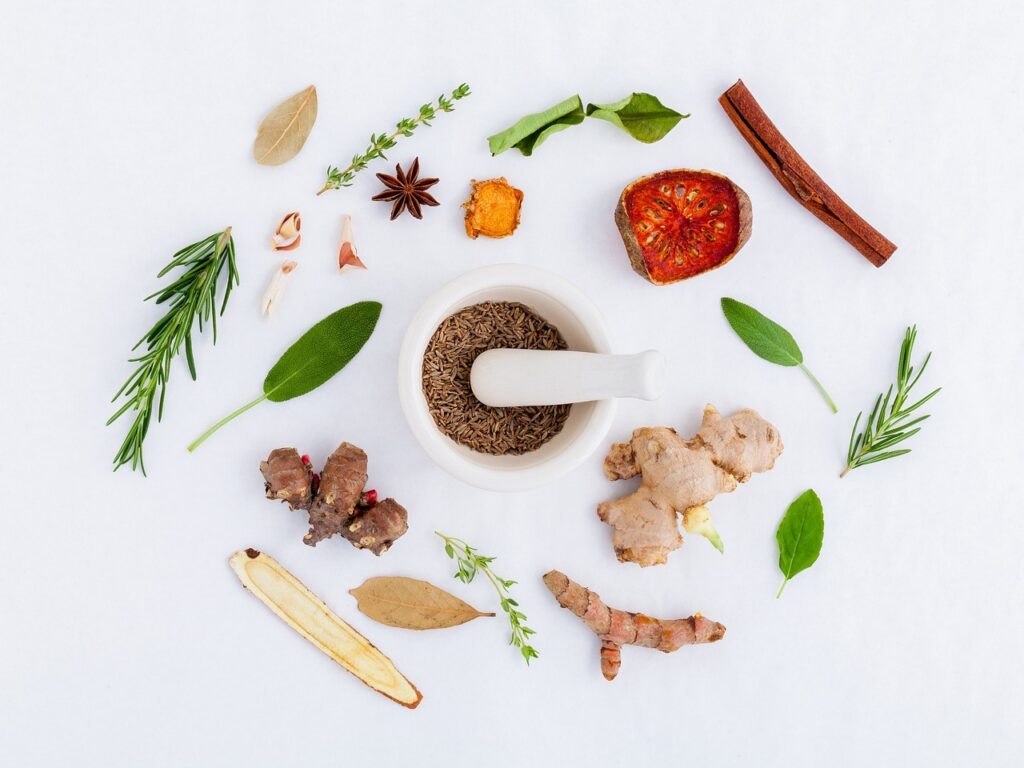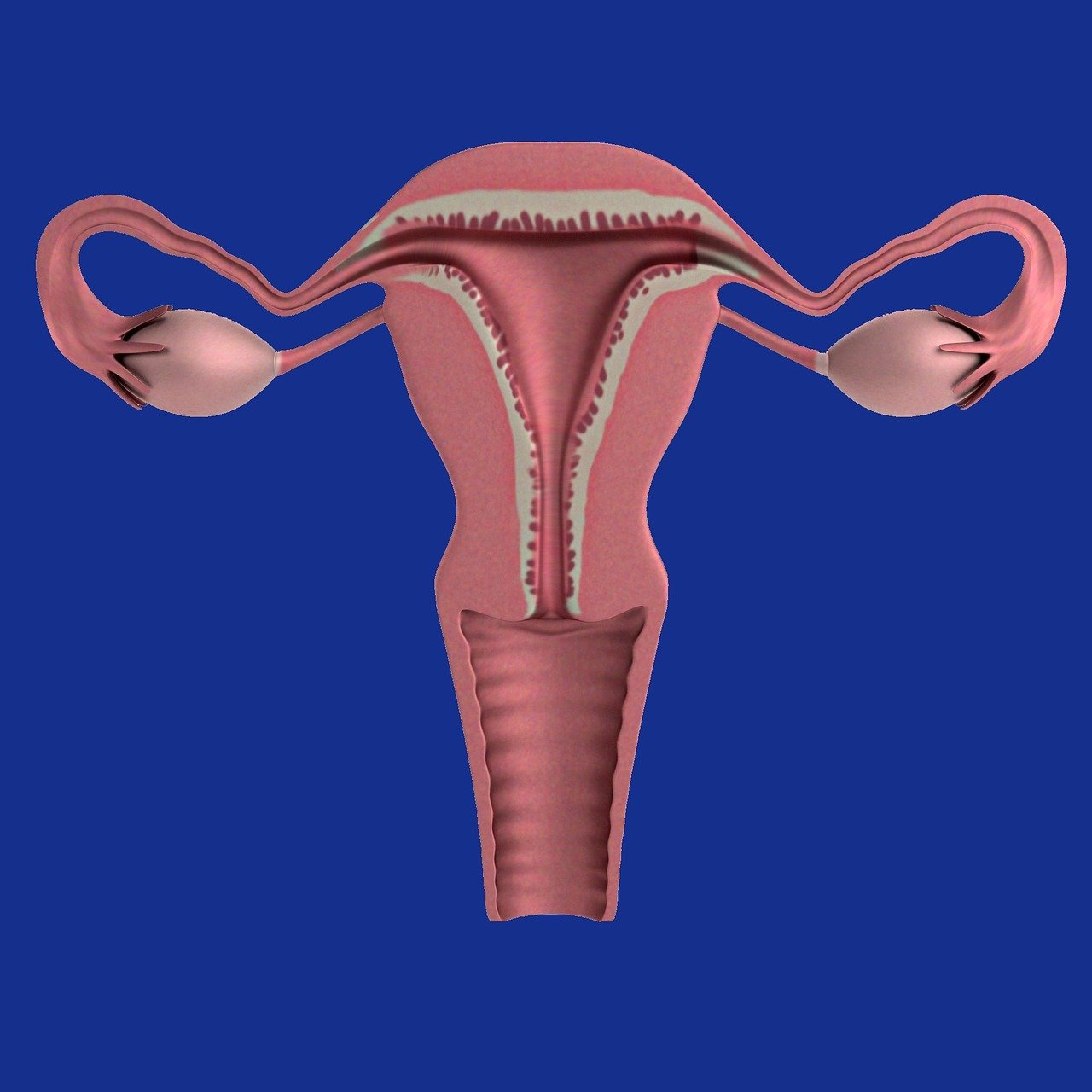Do you ever think of taking herbs for ovary health? If not, you should. Herbs can be a powerful ally for supporting ovarian health to help reduce symptoms and address the underlying cause of your condition.
Herbal medicines have long been used in traditional Chinese medicine (TCM) and other cultures as an effective way to treat various health issues. In TCM, herbs are combined with other treatments, such as acupuncture or massage, to create a comprehensive approach to health and wellness.
You can treat ovary issues like Polycystic ovary syndrome, ovarian cysts, and other infections through herbal medicine. However, speaking with your doctor before starting any herbal treatments is important. Some herbs can interfere with other medications, so getting the go-ahead and professional advice before beginning a regimen is best.
So in order to guide you on the best herbs for ovary health, I have compiled a list of herbs that have been used in traditional medicine to treat ovary issues. Read on to learn more about these powerful herbs and their effects on ovarian health.
Common Signs and Symptoms for Ovary-Related Issues

Before diving into the best herbs for ovary health, let’s quickly review some common symptoms associated with ovarian issues:
👉Abnormal Menstrual Cycles
Irregular periods, heavier than normal bleeding, or light spotting outside of your usual cycle can indicate something going on with your ovaries. If you notice any of these changes consistently happening, it might be time to see a doctor.
👉Infertility
Many women who struggle with infertility eventually learn that ovary-related issues are the underlying cause. If you have been trying to conceive for an extended time with no success, it might be worth checking out to see if there is an issue with your ovaries.
👉Pain During Sexual Intercourse
Many things can cause painful sex, but one possible factor is ovary-related issues. If you experience this symptom frequently, it’s essential to get checked out by a healthcare professional.
👉Pelvic Pain
Many women with ovarian issues report persistent pain or discomfort in their pelvic area. This pain can be sharp or dull and may come and go or be constant. If you feel this kind of discomfort, don’t hesitate to see your doctor.
👉Urinary Incontinence or Frequency of Urination
Ovarian tumors can cause bladder problems like urinary incontinence or an increase in how often you need to use the restroom. If you notice any abnormal changes in your urinary habits, it’s worth looking into.
👉Bloating
Feeling bloated or experiencing digestive issues such as constipation or diarrhea can be a symptom of ovarian issues. While an occasional bloated feeling after eating is normal, persistent symptoms may warrant a visit to your doctor.
👉Weight Gain
If you tend to gain weight around your stomach or pelvis, this can indicate ovarian issues. You should take these types of symptoms seriously and be checked out by a medical professional.
Remember to listen to your body and take care of yourself. If unsure, don’t hesitate to see a medical professional. Let’s prioritize our reproductive health and take steps to live our healthiest lives.
The Best Herbs for Ovary Health

It is frustrating when you have an ovarian condition that doesn’t seem to respond to the prescribed treatments. Taking herbs can help address the root cause of the problem and reduce symptoms while still working with your doctor’s treatment plan. So below are the best herbs for ovary health:
1: Maca Root
Also known as Peruvian ginseng, is a root vegetable native to Peru. It has been used for centuries to enhance fertility, increase energy and libido, and improve mood. It contains a unique blend of nutrients such as vitamins B, C, and E, calcium, potassium, and iron. These ingredients are essential for the proper functioning of our endocrine system, which regulates reproductive hormones. It stimulates the production of estrogen, progesterone, and testosterone, which is beneficial for ovary health.
2: Varuna
Conversely, Varuna is an Indian herb that has been used in Ayurvedic medicine for centuries. It is known for its anti-inflammatory properties, making it an excellent herb for reducing pelvic pain and inflammation. Varuna is also beneficial for reducing symptoms of Polycystic Ovary Syndrome (PCOS). The herb helps to balance hormones by reducing the production of testosterone, which is usually high in women with Polycystic ovary syndrome. Additionally, it is beneficial in reducing urinary tract infections, which can affect ovarian health.
3: Black Cohosh Root
This North American herb has been used in traditional medicine to reduce menstrual cramps and support regulating hormonal changes. This contains phytoestrogen, a plant estrogen that mimics the hormone our ovaries produce. It helps balance estrogen levels, reducing hot flashes, mood swings, and night sweats. This is also known to support bone density and cardiovascular health, greatly supporting women going through menopause.
4: Chaste Berry
Also known as vitex agnus-castus, the chaste berry is a herb native to the Mediterranean and Central Asia. Agnus Castus has been used to manage PMS symptoms and reduce menstrual pain. Chaste berry stimulates the pituitary gland, which improves the balance of luteinizing hormone (LH) and follicle-stimulating hormone (FSH) in our system. The proper balance of these hormones helps regulate menstrual cycles and supports fertility. Chaste berry also supports our emotional health by reducing stress, anxiety, and irritability.
5: Dong Quai Root
Its a staple of traditional Chinese medicine used for thousands of years to support women’s health. It contains compounds that help regulate blood flow and reduce menstrual cramps. This is particularly known for its ability to balance estrogen levels and improve hormonal imbalances. Its anti-inflammatory properties also make it great for reducing inflammation and supporting the immune system.
6: Bilva
Bilva, also known as Aegle marmelos, has anti-inflammatory properties, which are essential for preventing conditions like Polycystic Ovary Syndrome (PCOS). It also helps regulate hormones, which can help reduce menstrual cramps and improve fertility. Bilva is an adaptogenic herb, meaning it helps the body cope with stress. It’s also known for its antioxidant properties, which can help protect against free radical damage.
7: Milk Thistle seed
This herb is packed with antioxidants and contains silymarin, known for its anti-inflammatory properties. Silymarin can help prevent the formation of cysts in your ovaries and reduce the risk of developing ovarian cancer. It also helps reduce cholesterol levels, which can benefit those with Polycystic ovarian syndrome. Milk thistle seed is packed with vitamins and minerals, including vitamins A, B6, C, and E, as well as potassium, selenium, magnesium, and iron. These trace elements are important for overall health and fertility.
8: Evening Primrose Oil
Evening Primrose is rich in Gamma-Linolenic Acid (GLA), an essential fatty acid that helps regulate hormones in your body, especially estrogen. Estrogen is the primary hormone responsible for ovarian function, and any imbalance can affect your ovary health. This oil can also help reduce inflammation and lessen the symptoms of Polycystic ovary syndrome. It is especially beneficial for women who have trouble conceiving as it helps regulate ovulation. Lastly, it may help reduce painful menstrual cramps associated with polycystic ovarian syndrome.
9: Tribulus
This herb has been used for centuries in Ayurvedic medicine to treat various health issues, including those related to the reproductive system. It is particularly useful for women with ovarian problems because it contains compounds that naturally promote hormonal balance. Tribulus Terrestris has been shown to reduce levels of the stress hormone cortisol, which can otherwise disrupt the delicate balance of estrogen and progesterone in the body. Tribulus can help prevent cysts, improve egg quality, and regulate menstrual cycles by regulating these hormones. Additionally, some research suggests that tribulus may even increase libido and fertility.
10: Red clover
Another popular herb for women’s health, it is rich in phytoestrogens – plant-based substances that mimic the effects of estrogen in the body. This can be particularly beneficial for women experiencing low estrogen levels, which can cause a range of issues, including mood swings, hot flashes, and vaginal dryness. By naturally increasing estrogen levels, it can help prevent ovarian cysts and other issues related to hormonal imbalances, promoting bone health and reducing the risk of certain cancers.
11: Wild Yam root
This herb has been used for centuries as a natural treatment for a variety of ailments, from menstrual cramps to digestive issues. Not only can wild yam root help to balance your hormones and regulate your menstrual cycle, but it can also help to decrease inflammation and improve your overall digestive health. This herb can be taken in various forms, from capsules to teas, and even as a natural cream that you can apply topically.
12: Guduchi
Another herb that’s great for ovary health is guduchi. This Tinospora Cordifolia herb has been used in traditional Ayurvedic medicine for centuries. It’s not only an excellent antioxidant, but it has been shown to help with hormonal balance and can also help to improve liver function. Guduchi may also be an effective diuretic if you struggle with water retention. However, be careful when consuming guduchi, as it can be very bitter. It’s usually taken in capsule form to avoid the unpleasant taste.
13: Yarrow
This herb is often used for its anti-inflammatory properties, reducing blood clots, and analgesic (pain-relieving) effects. Yarrow also helps stimulate menstruation and support the female reproductive system. Researchers suggest that the active ingredient in yarrow may work similarly to progesterone, subsequently increasing the amount of progesterone in the system. This hormone is crucial to the health of your ovaries and reproductive system. Yarrow is also known to have diuretic properties, which means it can support liver detoxification and the removal of wastes from the body leading to proper hormone metabolism.
14: Punarnava
Punarnava is one of the most important herbs used in Ayurvedic medicine. It helps to reduce inflammation, improve digestion, and balance hormones. This herb can also help improve ovarian health by reducing cysts and improving egg quality. Additionally, it can help with irregular periods, infertility, and amenorrhea (absence of menstrual cycle). Punarnava is usually taken in capsule form or as tea. If you suffer from any of the symptoms mentioned above, Punarnava may be an effective solution.
These 15 herbs can be used to support and promote overall ovarian health. From reducing inflammation to balancing hormones and improving egg quality, these herbs offer many benefits for women struggling with reproductive issues.
Frequently Asked Questions on Ovary Health
Q: What is the recommended dosage and form (e.g., capsules, teas) for using herbs for ovary health?
The recommended dosage and form of herbs for ovary health depend on the type of herb being used. It is best to consult a qualified herbalist or naturopath before starting any herbal medicine. Some commonly used herbs for ovary health include red clover, black cohosh, and maca. You can take these herbs as capsules, teas, tinctures, or as part of a herbal supplement formula. The dosage will vary depending on the herb and the individual’s needs.
Q: Are there any potential side effects or interactions to be aware of when using herbs for ovary health?
Herbs can have potential side effects or interactions like any other medication or supplement. Speaking to a healthcare professional before starting any herbal medicine is crucial. Some herbs, such as black cohosh, can interact with some medications or conditions, and others, such as dong quai, can increase the risk of bleeding. It is important to note that herbal medicines are not a substitute for medical diagnosis or treatment of serious health issues.
Q: How long does it typically take to see results when using herbs for ovary health?
The time it takes to see results when using herbs for ovary health will vary depending on the individual, the herb, and the treated condition. Some women may notice the benefits of supplementing with herbs within days, while others may take weeks or even months to see an improvement. It is essential to be patient and consistent when using herbs and to consult a qualified herbalist or naturopath if no improvement is seen within a reasonable amount of time.
Q: What are some lifestyle changes that can help improve ovary health?
Making simple lifestyle changes can also help improve your ovary health. Eating a healthy, balanced diet with sufficient vitamins and minerals is vital. Exercise regularly to reduce stress and improve overall health. Also, reduce exposure to toxins that can harm the ovaries, such as alcohol, tobacco, and environmental pollutants.
Q: How can I tell if my ovary health issue has improved?
The most accurate way to tell if your ovary health has improved is to have regular check-ups with a healthcare professional. They may be able to detect any changes in hormone levels or other signs of improved health. Additionally, keep track of changes in symptoms such as menstrual cycle regulation, signs of infertility, fatigue, etc. Monitoring these can help track the progress of your ovary health.
Final Words
After learning about the many herbs for ovary health, I hope you now understand the benefits and potential side effects of these herbal remedies. Prevention is the best medicine! And Herbs may be the secret weapon you’ve all been searching for when it comes to maintaining healthy ovaries. And the best part? You don’t need to break the bank to incorporate them into your daily routine. Whether you prefer sipping on a cup of tea, taking a tincture, or adding some herbs to your meals, there are many fun and easy ways to reap the benefits of these potent plants. So why not try them and see how they can transform your health and well-being? Your ovaries (and your future self) will thank you!

